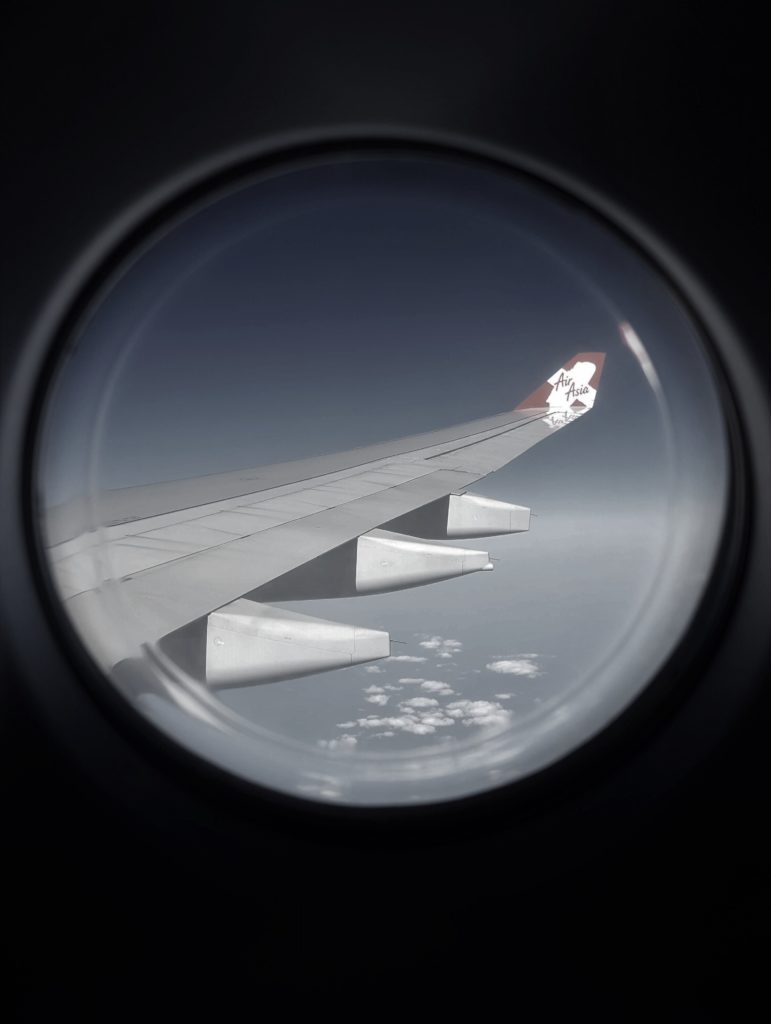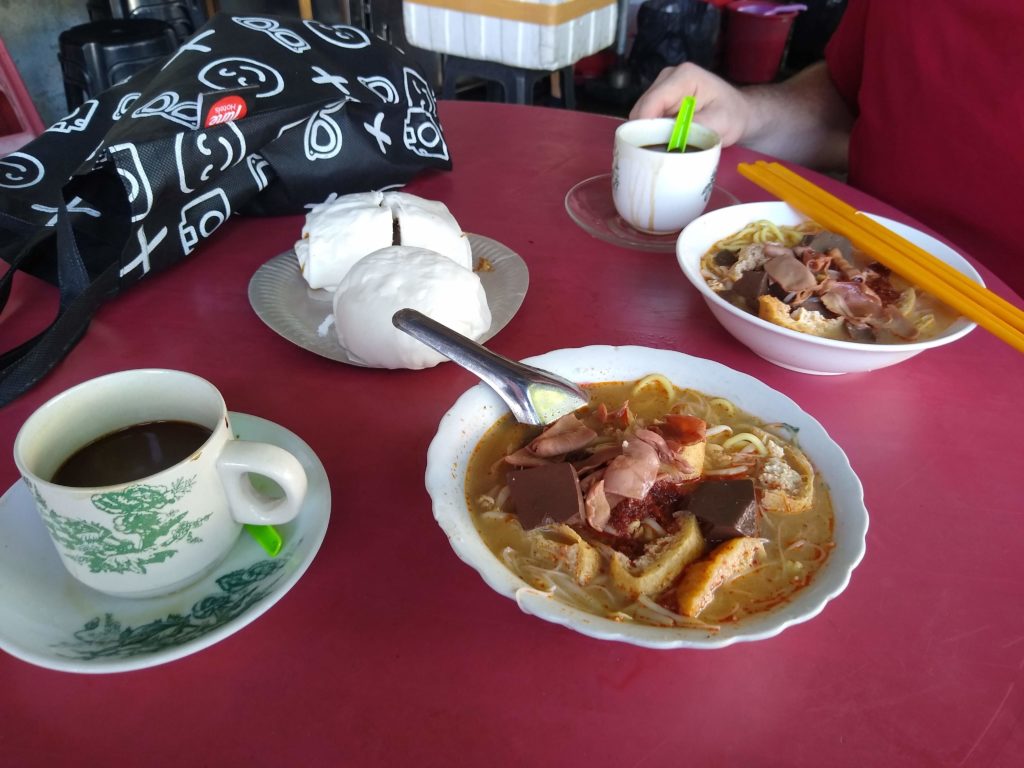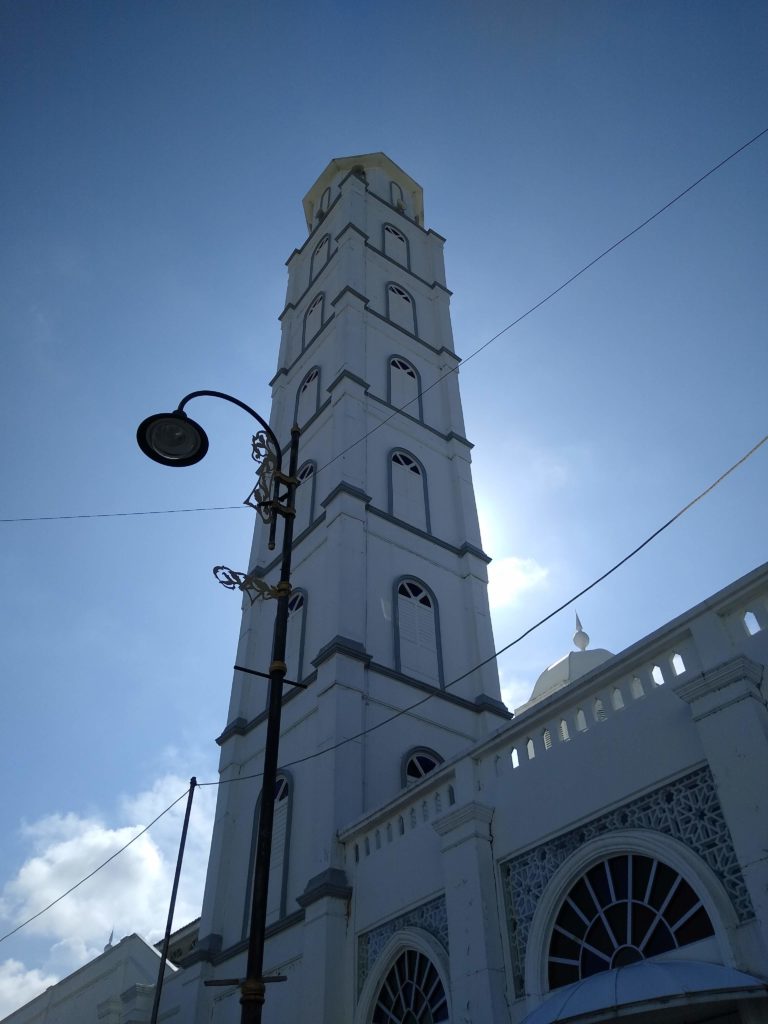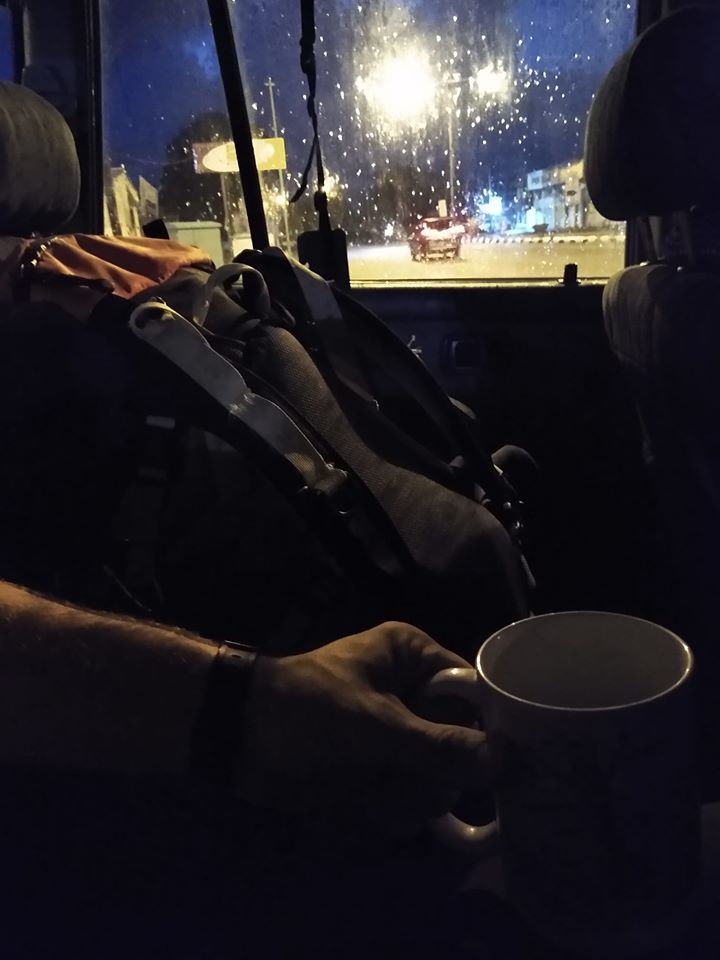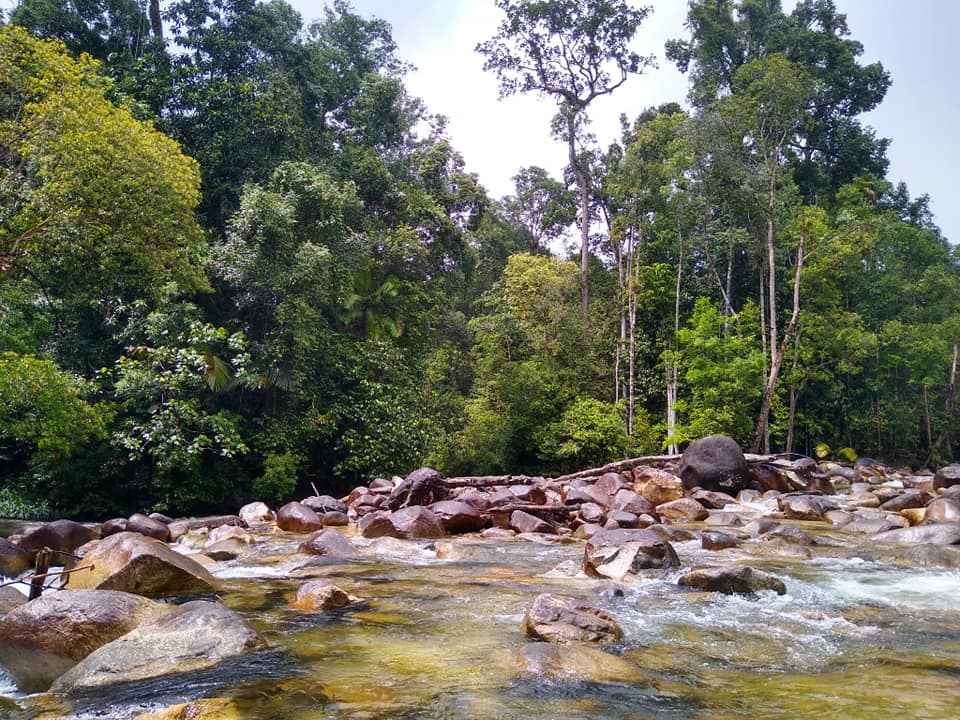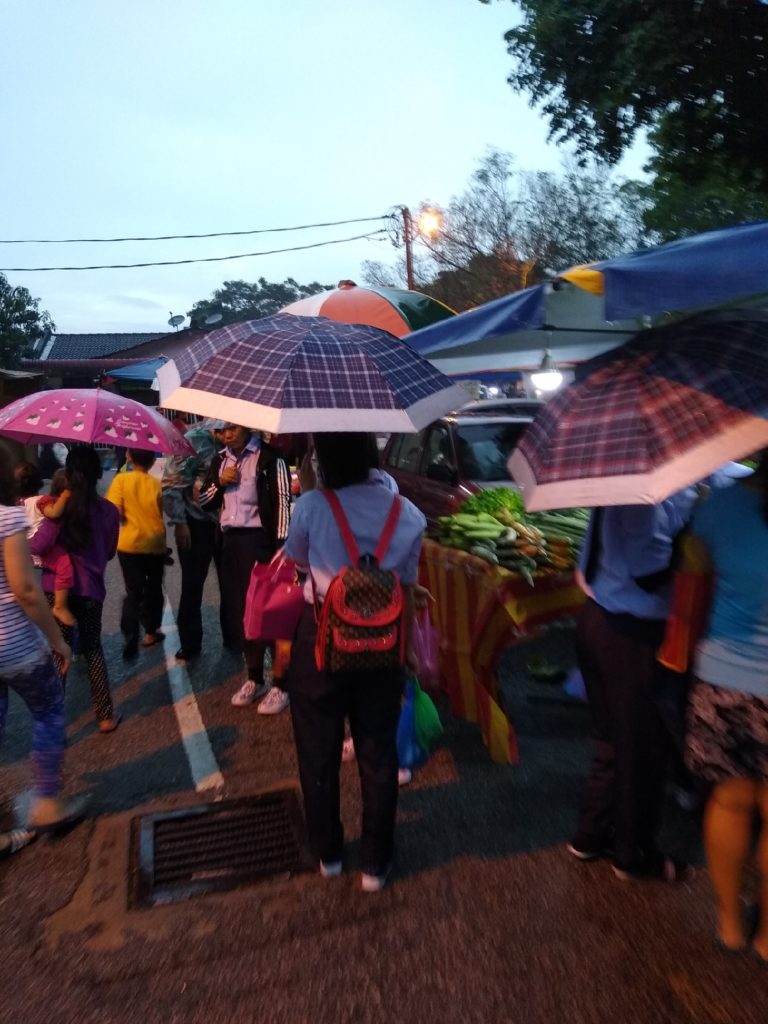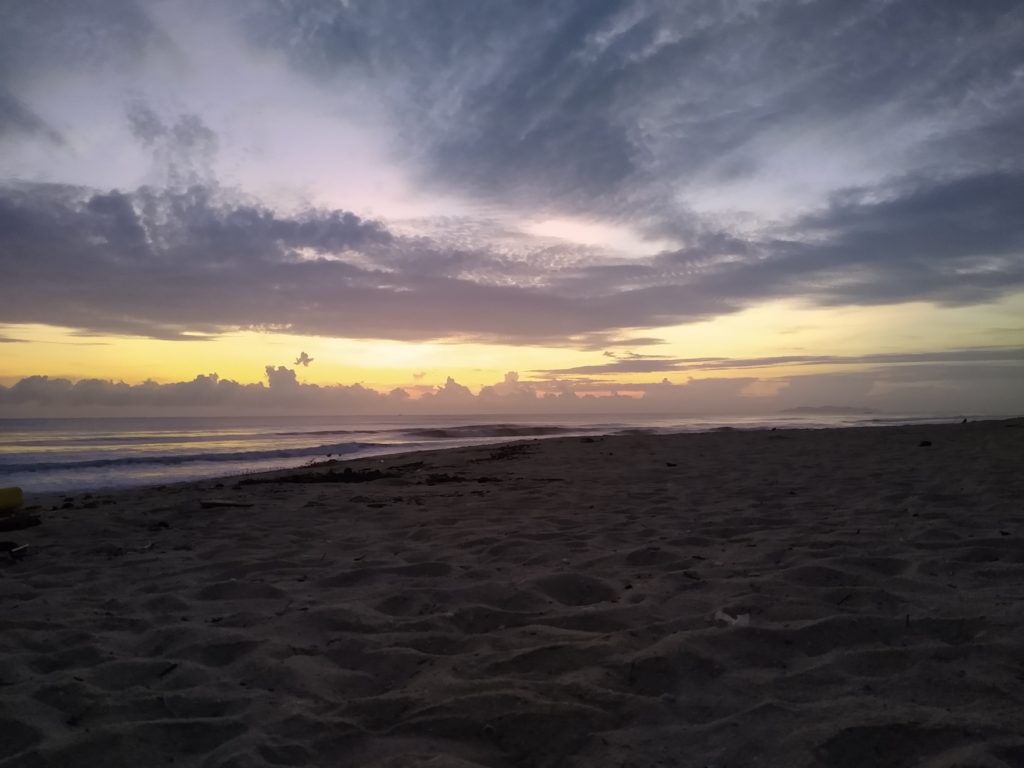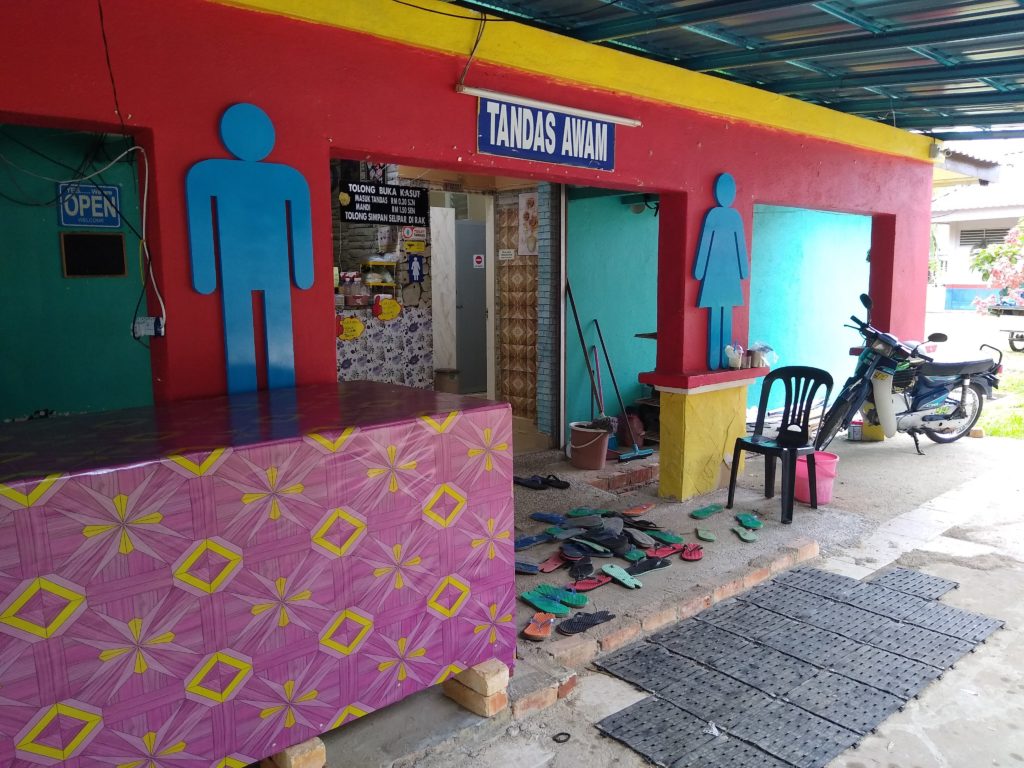
Foreign Bathroom Series, Chapter 7
Travel Journal, 108
Our plan was simple: take the bus across the country from Penang to Terengganu. A friend of ours lived there and had a plan to take us on an excursion into the jungle. My good friend, Matthew, and I were to meet him the next day. But between now and then, we had to get across the peninsular country. Flights were too expensive. We settled on a bus ticket, specifically, we settled on taking the bus at night.
If “night bus in Malaysia” makes you a tad nervous, it should. But I’ve traveled on my share of sketchy busses. Honestly, the biggest problem with a night bus is sleep, especially when you have major plans the next day. But I had a solution, we would simply take a handful of the equally sketchy sleeping pills I got in Japan a few days ago, and sleep the entire 5-hour trip. We did not sleep as well as we expected, but at least we felt groggy and dazed—so there’s that.
I could tell you about the bathroom on the bus, but I would have to completely fabricate that tale, as the bus had no bathroom. The driver stopped one time to pick up a couple of passengers. We used the “public restroom” at some wayside oasis that could have been a perfect spot for a murder in a foreign horror film. But then we were back on the bus, cruising toward Terengganu.
The light barely painted the horizon when the bus pulled into our station, which, as I remember it, we almost missed (Matthew, you’ll have to clarify that for me when I see you next). I had never been to Terengganu. It’s a gem almost directly across the peninsula from Penang. And I was thrilled to go there.
This simple plan of “take the night bus” didn’t really account for the several hours of waiting we would have to do when we got here. The friend we were meeting wasn’t even around until early afternoon. I love so much about Malaysia, most of it food oriented. Noodles, rice, chicken, soups, you name it, they’ve got it. But the stands and shops have to open before they can feed me. Nothing would open for hours.
When it’s nearly 5 a.m. in a foreign country after taking the probably-very-dangerous-night-bus and you haven’t slept properly and you’re tired and don’t have anywhere to go because nothing opens for another four hours…
(author takes a breath)
…whatever do you do?
Why, go sleep on the beach with you’re backpack like a homeless person, of course. I spread my hammock on the sand and rested as the sun rose on us weary travelers. But one problem remained—where to use the…facilities.
I walked across a nearby park after the sun had risen and day began. There it stood: an actual public bathroom. Few times in your life do you really need bathroom instructions, but I would recommend getting a briefing on public toileting in Terengganu, Malaysia.
Why? You ask.
More so than Penang, Terengganu is primarily Muslim. And yes, it does matter. Islamic bathroom habits are not unusual, dirty, or wrong. They are simply different from Western culture, and even deeply seated in their religion. (And there is so much more to Islamic etiquette than what is written here. I can only report on my own experiences.)
The small cement building had two entrances, men and women, clearly. I climbed the one step up into the little entry and was immediately accosted by an attendant in a robe, turban, and sandaled feet. He pointed at my shod feet and I got the picture. I removed my running shoes at once. And while I was down there, I saw dozens of what I now understood to be “bathroom sandals.” I slipped into a pair and paid my bathroom admission. (I have no idea how much, but to an American, anything is too much.)
The hallway was lined with curtained doorways, and the cement floor was soaked. I hoped it was water. I knew (mostly) what to expect. I turned into an open doorway and pulled the curtain behind me.
A hole.
It was a raised hole, but a hole, nonetheless. And next to the door was a small bucket, for…er…flushing. But the most disturbing part of the room what not what was in there, but what wasn’t in there.
No toilet paper.
Instead, next to the hole, a hose, like a kitchen sink sprayer jutted out of the wall and hung on a tiny hook. I don’t know about you, but my middle-class American, 80’s/90’s childhood did not prepare me for hosing down my backside with a sink sprayer, like I’m some kind of casserole pan somebody forgot to soak first.
I did my deed and will leave it at that. Feel free to let your imagination run wild.
I flung open the curtain just in time to watch another man open his. The man filled up his bucket halfway with water and doused the little cubicle. And before he left his toilet-closet, he threw a bucket of water down the hallway. And walking on his purified floor, he changed his shoes and left the public facility.
So, as a newly educated traveler, I followed suit—cleaning my toilet room, then throwing water down the hall. I changed my shoes and stood outside of the cement building, pausing to listen. I could hear the Muslim call to prayer.
anthony forrest
Check out the other chapters to this fun series:
